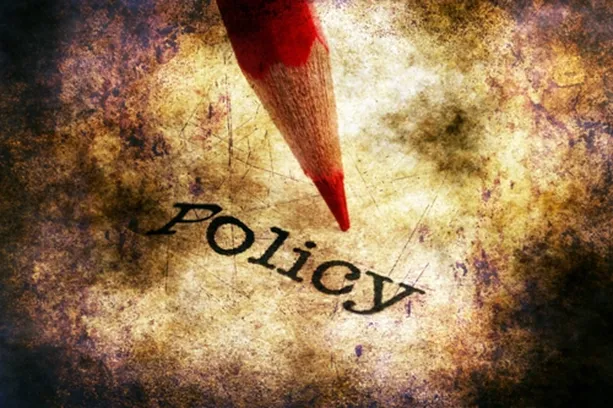Executive orders are easy; forging legislation is hard. Executive orders are flimsy and can be dismantled by the next administration. Crafting policy takes statesmanship and compromise. Policy lasts. It takes political leadership, along with an educated and motivated populace, to turn policies into laws. There are numerous examples of successful bi-partisan legislation at the local and national level, where business, social, and economic interests were balanced with the needs of the citizens. Public health programs, the GI Bill, the Interstate Highway system, FDIC, Clean Air and Water programs, workplace safety, consumer protection, etc. Additionally, there is broad economic progress resulting from the engine of free enterprise. Through free enterprise, we have reduced extreme poverty globally 80%, but over the last 50 years, the US poverty rate has not changed. The reality is that we are — and should not be — either pure socialist or capitalist; we choose a blend of both based on the current need and context.
As informed citizens, we are more effective in supporting leaders who champion balanced and effective policy. The courses, workshops, and monthly issues forum we offer tackle the policy issues that governments and communities face every day. Let’s address two faulty beliefs and values confounding the political debate:
- the oversimplification of problems
- the fallacy that neglect is good (or at least acceptable) in that it toughens us up and builds character.
Multiplicity is the next step
The issues facing us today are not simple: the easy problems get solved lower down the ladder. The better we can think about and work with our complex problems, the better the solutions we will develop. Independent and critical thinking is a developmental journey. We start as simple children: everything is either mean or nice, good or bad, happy or sad. This dualistic thinking is not a very good starting point for forging life’s necessary compromises. This worldview produces teasing and taunting, personal attacks and bullying, not reasoned responses. The next stage is multiplicity, the idea that we’re all entitled to our opinions and that each opinion holds equal value. This is an appealing safe haven in a worldview that produces a measure of self-respect, but only in the isolation of one’s thoughts and one’s tribe. But what happens when the context requires compromise or a comprehensive solution? Now, we’re in the realm of necessary conflict, the realm of policy and governance (and, by the way, of managing, parenting, and teaching). We grow to develop the capacity to balance competing interests, where the rule of law is preferable to the use of force. This is work that moves to the murky space of relativism. Some ideas are better than others — given certain requirements and a specific context.
Viewed in this context, criticisms of “elites,” appeals to fear, and childish personal attacks are revealed merely as undeveloped thinking. Our education system, the press, our public figures, and our social media cater to this worldview by using simplistic educational strategies, emotionally triggering news, personal attacks, appeals to fear, and free-for-all unmoderated and unguided debates. We continue to lower the bar on our culture; it’s time for citizens to raise the bar on our institutions. The answer is in education: help people develop their appreciation for intellectual development by pushing back on simplification and isolating strategies. We can do better. We promote interactivity as a necessary requirement in education, the development of soft skills and independent thinking, and moderated social media and news information flows.
Life, Liberty, and the pursuit of happiness
Our public debate is hampered by citizens and leaders who are stuck in dualistic and multiplistic models of thinking. To compound this, we have political rhetoric: emotional appeals, personal attacks, and simple sound bites which reinforce our entrenched positions. To be an effective citizen, we are each challenged to develop our capabilities and to learn to work with the cognitive dissonance of competing, viable alternatives. We’re responsible for riding out our emotional triggers, listening to diverse viewpoints, and responding with our hearts and our minds.
As long as people will accept crap, it will be financially profitable to dispense it. — Dick Cavett
Life, liberty, and the pursuit of happiness are our inalienable rights, but a fool hopes that we will solve all of our problems and find eternal peace in our lifetimes. It’s a pursuit, a journey. Pain and suffering are part of life and will always serve to toughen and produce wisdom in those who choose growth over stagnation. The rationale that inflicting pain or that withholding relief “builds character” is a misguided rationalization. There is a significant body of research demonstrating this. Here are a few resources on adverse childhood experiences and the impact of early adversity on development. Crying it out to develop independence is a failed 19th-century parenting style along the tragic lines of eugenics.
The aphorism “That which does not kill us, makes us stronger” reflects an outdated and damaging leadership style. Is this left-wing snowflake fluff? An alternative conclusion — based on science — is that those who intentionally ‘toughen up’ their kids, their spouses, their employees, and their citizens are acting immorally based on faulty beliefs. If this is you, take a hard look in the mirror. The bottom line is that a healthy population is a productive population and produces a healthy and productive society and economy. If relieving pain and suffering while promoting the dignity of meaningful work is within our capability, we should do so.
Wicked Policy Problems
Competing dynamics and limited capacity confound numerous policy issues. Here are a few to ponder: increasing economic opportunity, improving health care, and addressing climate change. Others await the intrepid facilitator: the rural/urban split, globalism vs. nationalism. If you are a subject matter expert, moved to build a program, or moderate a forum on these topics, let’s roll up our sleeves, sharpen our quills, and get to work.

Increasing Economic Opportunity
Economic security is the bottom-line issue. People fall into crime without a means of feeding themselves, and societies fall when citizens lose faith in the current system to provide achievable economic opportunities. Economic security and opportunity are the first issues. We take an in-depth look at the current factors impacting opportunity: the dynamics of competitive pressures on the marketplace, citizen’s ability to develop financial independence, business consolidation and antitrust, and the impacts of globalization and automation. We then look at different proposals and their merits to establish consensus on the next steps and policy ideas.
Improving the Health Care Model
A healthy population is a productive population. The US is the only first-world country without universal health coverage and has the most expensive health care in the world. From a citizen-consumer perspective, this is a terrible value. Don’t you think if the consumer really had a voice, this would stand? It’s in our interests to ensure everyone has access to reasonable health care. It seems the primary beneficiaries of our model are Health Care R&D and insurance companies. We are funding our competitive advantage with our lives; we are collateral damage. We take a look at alternative healthcare models, survey approaches from other countries, and then knock around competing ideas to come up with the next steps and policy recommendations
Addressing Climate Change
The most significant wicked problem is climate change and the prospects of falling behind in developing adaptations, new technologies, and protocols that follow from accepting these changes. The impact of climate change is far-reaching on energy and solar innovations, agriculture and fishing, transportation/electric vehicles, insurance, and healthcare. If you think turmoil is a good economic strategy — if you profit from chaos — there is no better game. We know the issues and are working on solutions, but the problem is technical. It is the FUD factor: the fear, uncertainty, and doubt deliberately perpetrated on our children. My children. We have taken a huge gamble bowing out of the Paris accord. There is a lot to lose in rejecting the 97% consensus of global scientists for what seem only to be short-term gains. We risk falling far behind in developing solutions the world will need. Are we short-sighted? What is the long-term strategy in defunding advances to adapt to a more volatile climate? The deniers have no end game. The wicked problem here is the needed immediacy, confounded by noise, in the face of a slow creeping disaster. We explore the truthiness of the competing claims and strategies to reach a consensus, overcome roadblocks, and move constructively forward to a healthier environment.
If you want someone to do a good job, then give them a good job to do. — Frederick Herzberg
Our model is to engage citizens in moderated learning teams, investing in their self-improvement, and through healthy dialogue produce solutions to run up the flagpole.

